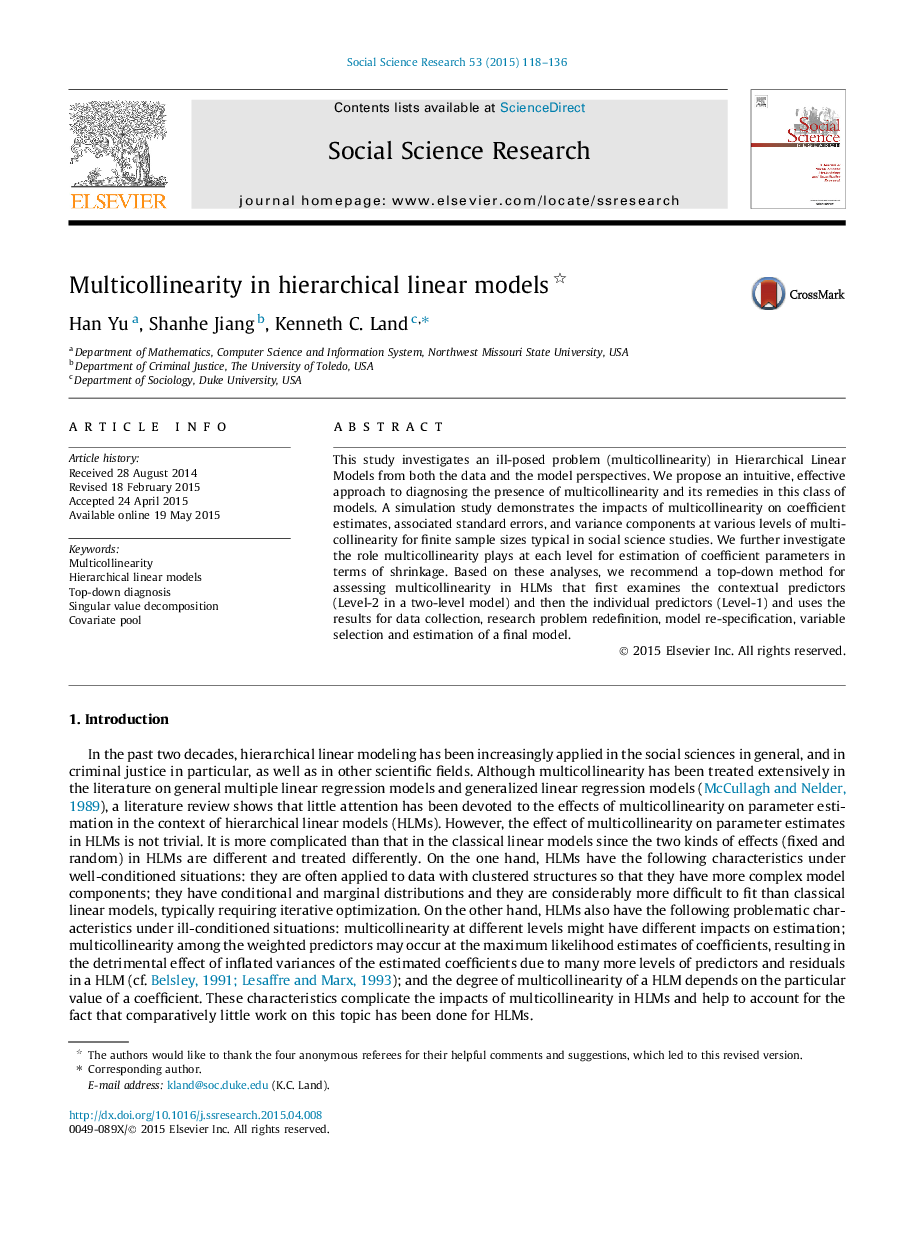| Article ID | Journal | Published Year | Pages | File Type |
|---|---|---|---|---|
| 955659 | Social Science Research | 2015 | 19 Pages |
•An ill-posed problem (multicollinearity) in Hierarchical Linear Models (HLMs) is investigated.•An approach to diagnosing the presence of multicollinearity and its remedies in HLMs is proposed.•A simulation study demonstrates the impacts of multicollinearity for finite sample sizes.•The role multicollinearity plays at each HLM level for estimation of model parameters is investigated.•A top-down method for using the results in HLM estimation and assessment is recommended.
This study investigates an ill-posed problem (multicollinearity) in Hierarchical Linear Models from both the data and the model perspectives. We propose an intuitive, effective approach to diagnosing the presence of multicollinearity and its remedies in this class of models. A simulation study demonstrates the impacts of multicollinearity on coefficient estimates, associated standard errors, and variance components at various levels of multicollinearity for finite sample sizes typical in social science studies. We further investigate the role multicollinearity plays at each level for estimation of coefficient parameters in terms of shrinkage. Based on these analyses, we recommend a top-down method for assessing multicollinearity in HLMs that first examines the contextual predictors (Level-2 in a two-level model) and then the individual predictors (Level-1) and uses the results for data collection, research problem redefinition, model re-specification, variable selection and estimation of a final model.
